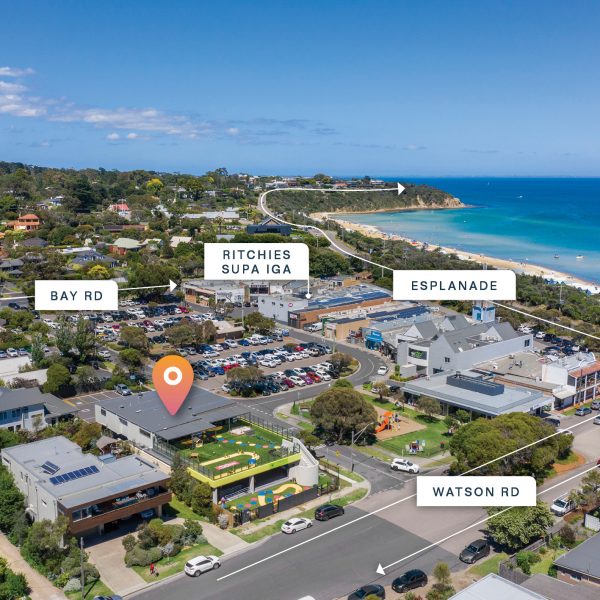The state of the ECEC freehold market – In conversation with Adam Thomas, Director Burgess Rawson

Despite the uncertainty of 2020, demand for freehold early childhood education and care centres in 2021 has been robust as investors from both ends of the spectrum seek to add the newly dubbed “essential service” asset that is childcare to their portfolios.
The Sector recently spoke with Burgess Rawson Director and Childcare Specialist Adam Thomas about what has been driving the demand thus far in 2021, who is behind the demand, and what the future may hold for the sector going forward.
Burgess Rawson is Australia’s largest ECEC real estate and business broker. The agency conducts freehold auctions on a six-weekly basis at which ECEC centres from across the country are sold to an increasingly large pool of investors.
The current market for ECEC services – How does it feel right now?
After the disruption to ECEC centres operations in March and April 2020 due to COVID-19, the Federal Government’s commitment to stand by the sector through a support package and inclusion in the JobKeeper program injected a sense of relief into the operators and by extension, the freeholders of centres.
As the details of the packages started to filter through the sector, enquiry levels started to build back up again until by September, transactions were taking place again.
“Yes, September was a pivotal month. We started to see more concerted commitments to the sector largely from local private operators, what we would call the “mums and dads” and smaller specialist syndicate buyers too,” said Mr Thomas.
“Since then we have also seen the type of buyers looking to participate in the sector broaden dramatically with larger institutions, both local and overseas, joining the small to medium local players.”
“And with that, we have seen yields now compress by 50 to 60 basis points in September 2020 to around 80 basis points now relative to last year.”
“So, the market is definitely strong right now.”
Where is the demand focused on – Are there any geographical trends in play?
Historically demand for ECEC centres has had a metro bias as investors sought to take advantage of strong fundamental growth combined with higher than average rentals. But with the COVID-19 pandemic catalysing a shift in thinking about regional centres, it raises the prospect of a consequent shift in demand for those centres.
“For a long time, the barriers to entry in regional locations have been lower, largely driven by cheaper land, which has meant that the centres themselves have been generally cheaper than their metro counterparts,” said Mr Thomas.
“This dynamic has meant that historically, private, smaller investors have been more attracted to regional assets with larger institutional investors keen on high value metro sites with the strong fundamentals they like to see before committing.”
“In the current market, we are seeing a broadening of demand for regional centres from investors that are happy to go further afield to secure that extra yield. If you have a strong underlying business that is leased to a really good private operator with up to ten centres, and they have a great name in the community and are tracking at solid occupancies, it makes sense to look at regional investments, especially relative to metro.”
What does the future look like? Can we expect further price appreciation?
With the price recovery from the COVID-19 lows so marked and Burgess Rawson’s ECEC centre auction roster becoming increasingly large, the outlook for the sector will be of real interest to not just owners of ECEC services but operators too.
“Well, confidence is at an all-time high right now and has been for the last few months. The cost of capital is at an all-time low and the message from the RBA (Reserve Bank of Australia) is that interest rates are going to stay low and money is going to remain pretty cheap in the medium term,” Mr Thomas said.
“Combine that with investors increasingly accepting ECEC as being an asset class with really good fundamentals, and that is Government backed, then the outlook has to be positive.”
“Yes, yields have compressed a lot since last year as the market repriced, but we still feel there is some room to go lower and are preparing as a team for another busy six to nine months to come.”
To learn more about Burgess Rawson’s ECEC services please click here or to speak with Adam Thomas directly please email here or call on 0418 998 971.
Popular

Practice
Provider
Quality
Research
Workforce
New activity booklet supports everyday conversations to keep children safe
2025-07-10 09:00:16
by Fiona Alston

Quality
Practice
Provider
Research
Workforce
Honouring the quiet magic of early childhood
2025-07-11 09:15:00
by Fiona Alston

Quality
Practice
Provider
Workforce
Reclaiming Joy: Why connection, curiosity and care still matter in early childhood education
2025-07-09 10:00:07
by Fiona Alston












